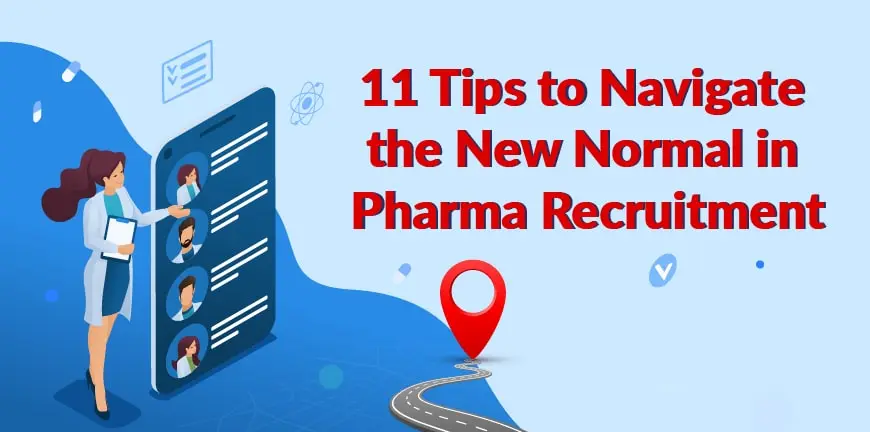
8 Benefits of Hiring Bilingual Employees
04/07/2024
How to Manage High Payroll Complexity?
09/07/2024Discovery is the need of the hour when it comes to critical illnesses. Even for common illnesses, there can be a better way of tackling them by using medicines and treatment regimens that are more effective. This is the importance of pharma, saving lives through medicines, though it does involve a fair bit of marketing as well. And the pandemic forced even pharma to rethink how it operates. And once again India became the savior of the world, by researching, manufacturing and even exporting vaccines to other countries.
Recent Regulatory Challenges in Pharma
However, things took a wrong turn, and few pharma companies must take the bitter medicine (pun intended) that is being served by regulatory companies now. The Indian pharma regulatory authority CDSCO said that as many as 36% of the plants had to be shut down. This is a great setback for the Indian pharma industry. This comes after one-and-half years of inspections. India is the third-largest maker of drugs in the world after United States and China, and this is not great news for India.
The Solution That Needs to Be Applied
While we are confident that the pharma industry in India will bounce back from this crisis stronger than ever, it remains to be seen how long this will take. From a technology standpoint, this means the use of more advanced technology and AI to assist with precise formulations and quality drug development. From a recruitment angle, this means more talent onboarded not just in data science, technology management, and administration but in compliance and quality assurance also in pharma. Here are 11 ways pharma companies can navigate this new normal in pharma recruitment.
11 Recruitment Tips in 2024 for Pharma
1. Understand the New Regulatory Environment
Stay updated on the latest rules and regulations set by regulatory bodies such as CDSCO. Workshops and conferences can help network with people who are not only involved in compliance but also understand these regulations in more detail.
2. Incorporate Technology to Automate Quality Assurance Tasks
Digitize existing manual processes and then use more advanced technology in the manufacturing and testing processes. This will help manage the factory conditions and raw materials more effectively. This will also help eliminate the risk of human error and lead to medicines that are safer, with the right formulation. They will also follow stringent compliance rules for trace elements.
3. Prepare and Hire for the New Regulatory Environment
You must then first train your recruitment team on how these regulatory practices will impact the way you hire and whom you hire. Once you have trained your hiring team, you can then hire consultants who can help you with navigating regulatory compliance or hire full-time compliance professionals, if you have the resources to do so.
4. Prepare and Hire for the New Technology
Your recruiter needs to be updated on the latest technology trends to fulfil their role as a Tech or IT Recruiter. Such information will help them shortlist people with the required skills and hire mentors who can train them on these prerequisites. Recruiters must also attend workshops and conferences to stay informed about new advancements in technology that the operations teams think would help the pharma company.
5. Collaborate with Educational Institutions
Partner with universities that train people in biosciences, technology and compliance. Encourage students in these universities to apply for your companies by organizing campus recruitment drives for them and attracting such talent early. Those who are not interested can remain in your database and will help you build a robust talent pipeline.
6. Network with Experts and Authorities
Engage with professional associations such as the Indian Pharmaceutical Association (IPA) which will help you connect with pharmaceutical scientists who can advance drug discovery and efficacy further. Also engage with organizations such as the Organization of Pharmaceutical Producers of India (OPPI) to help your marketing teams stay on course and train new resources to follow the ethical code in all marketing practices.
7. Streamline the Recruitment Process
To make sure that the hired candidates are the best in the industry and are up to face any regulatory challenges you may have for them, you must incorporate screening assignments that assess specific skills and design innovative exercises to gauge their aptitude and how they apply themselves in and react to scenarios commonly encountered in pharma. Make sure to test their ethical viewpoints, how they communicate and how much attention to detail they have, all crucial elements in compliance. Make sure the ATS does not filter out candidates who are eligible for the role.
8. Optimize Job Descriptions
Job descriptions need to be optimized to ensure that it attracts the regulatory compliance audience effectively as much as it does a tech savvy one, by promoting the company as being eager to establish standards and compliance and providing a climate suitable for it. Also project your company as one that encourages tech innovation and out-of-the-box thinking where it is practical and makes sense. That brings us to our next point.
9. Establishing a Center for Training and Excellence
To ensure that you are on track with compliance and that the talent gets to learn from industry mentors, there must be a center of training and excellence established which sets a benchmark for how to approach problems, come up with innovative solutions, and measure outcomes and continue testing to increase efficiency (because we want to remain a pharma leader) and accuracy. And it’s worth going the whole nine yards! You must encourage employees to undergo training specific to certifications as well and bear the cost of certification.
10. Establish Strategic Partnerships
Are you facing regulatory challenges you think are because the regulatory system itself needs a change or a refresh? Partner with other pharmaceutical companies and bring your voice to the fore, letting people know. Establishing such partnerships will also help pharmaceutical companies share knowledge, partner in the discovery of new drugs, and work on matters of common interest and within the boundaries of compliance together.
11. Work with a Staffing Partner
A staffing partner can help you immensely as you brace yourself for present and future regulatory challenges. The staffing partner can help meet talent, compliance, and other organizational needs such as payroll. Alp Consulting is a staffing partner for pharma and has helped several leading pharma companies meet their hiring and organizational needs.
The Pharma Industry Will Rise Again
Though the pharma companies in India have received a lot of blame, let’s be optimistic and look at the positives. The pharma companies have been providing direct and indirect employment to millions, and they are necessary for the sustenance of healthcare in India. From an ethical standpoint, pharma companies are vigilant, and perhaps with the coming of new technology, we will be able to come back strongly from our recent setbacks. We want to see the face of Indian Pharma as beautiful and shining as ever, and we need to work with determination and grit to make that visible not just to India but to the whole world. Let’s make it happen.
Contact Us For Business Enquiry

Amit Saproo
Amit Saproo is the Head of Operations at ALP Consulting with nearly 17 years of experience in Executive Search, RPO, Leadership, and IT & Engineering recruitment. He leads nationwide recruitment programs across Technology, BFSI, and R&D domains, driving strategic hiring solutions for diverse client needs. Amit excels in building and managing high-performance teams that deliver scalable, end-to-end recruitment and consulting services.



